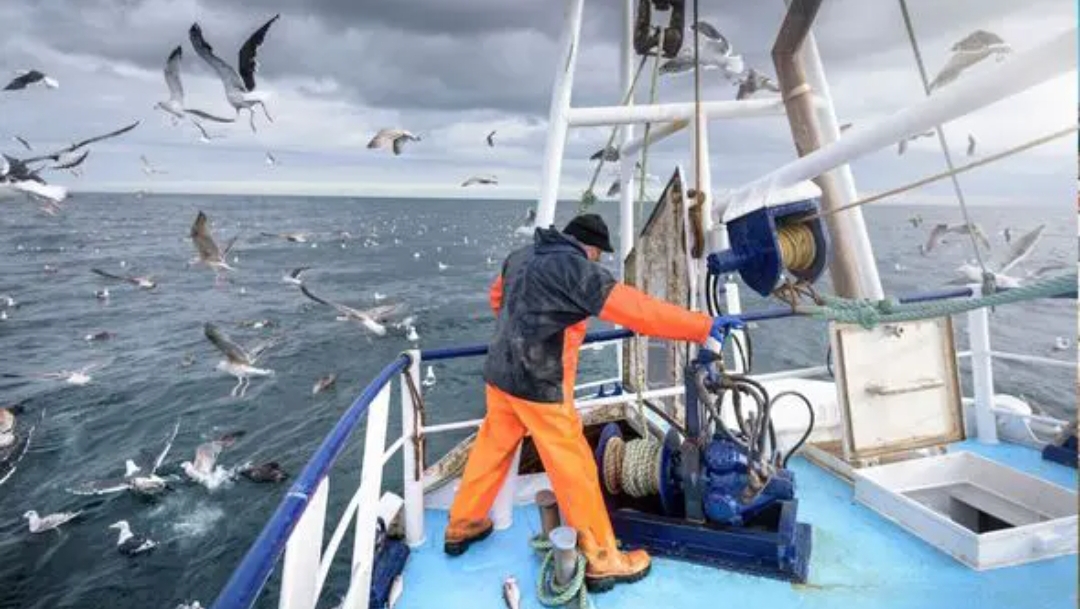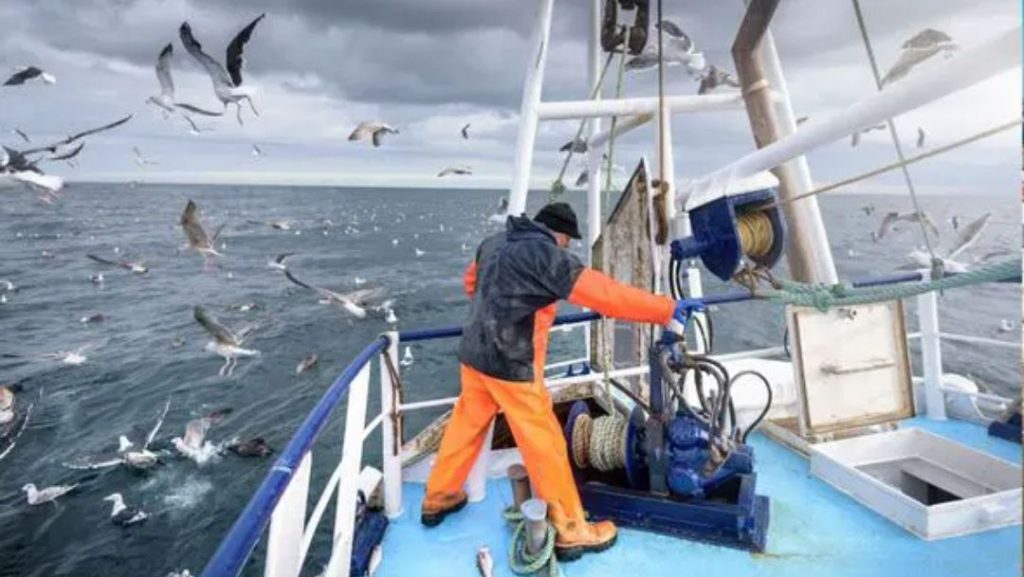
In a fresh blow to post-Brexit relations, the UK’s decision to ban sand eel fishing on Dogger Bank in the North Sea has ignited a furious response from European fishermen, with Denmark and Sweden urging the EU to take action. This move, which is set to impact Denmark’s fishing industry with a potential annual loss of €18 million (£15.4 million), has heightened tensions and threatens to strain the delicate balance established by the EU-UK Trade and Cooperation Agreement.

According to reports by Express News, The sand eel, crucial for Denmark and Sweden’s economies due to its use in pig feed and fish oil, has become the focal point of this latest fishing dispute. The ban, set to take effect next month, has prompted discussions within the EU about potential retaliatory measures, including the imposition of tariffs on UK exports, if the situation escalates into a breach of the trade agreement.
Danish Foreign Minister Lars Løkke Rasmussen emphasized the need for a unified EU response to prevent the erosion of fishing rights. He urged the European Commission to analyze the legality of the UK’s actions, and if deemed a breach, it would require a majority vote from the 27 member states to enact a collective response against the UK.
The closure of Dogger Bank, announced in January, has drawn criticism from Danish fishermen. Svend-Erik Andersen, chair of the Danish Fishermen’s Association, expressed his discontent, stating, “This is a humiliation for the EU. With the Brexit agreement, Danish fishermen paid dearly for access to British waters. Now, the UK is breaking the agreement. It is beyond criticism.”
While the UK has agreed to grant EU fleets access to its waters, it also reserves the right to implement conservation measures, provided they do not discriminate against any specific fleets. Denmark argues that the ban on sand eels constitutes discrimination, particularly as its ships account for 99 percent of the creatures caught.
The UK government has justified the decision to protect sand eels, citing their importance as a food source for marine birds and porpoises. Plans to restrict fishing on Dogger Bank were initially proposed in February 2021, designating it as one of four special conservation areas in need of protection.
Environmental organizations, including the Blue Marine Foundation, ClientEarth, the Marine Conservation Society, and the WWF, have linked the decline in fish stocks on Dogger Bank to decades of industrial bottom-trawling. They argue that the ban is a necessary step to address the environmental impact of such practices.
As tensions rise over this fishing dispute, the EU and the UK find themselves at another crossroads, navigating the complexities of post-Brexit agreements and attempting to strike a balance between conservation efforts and economic interests. The outcome of this disagreement could have far-reaching implications for future fisheries negotiations between the two parties.




